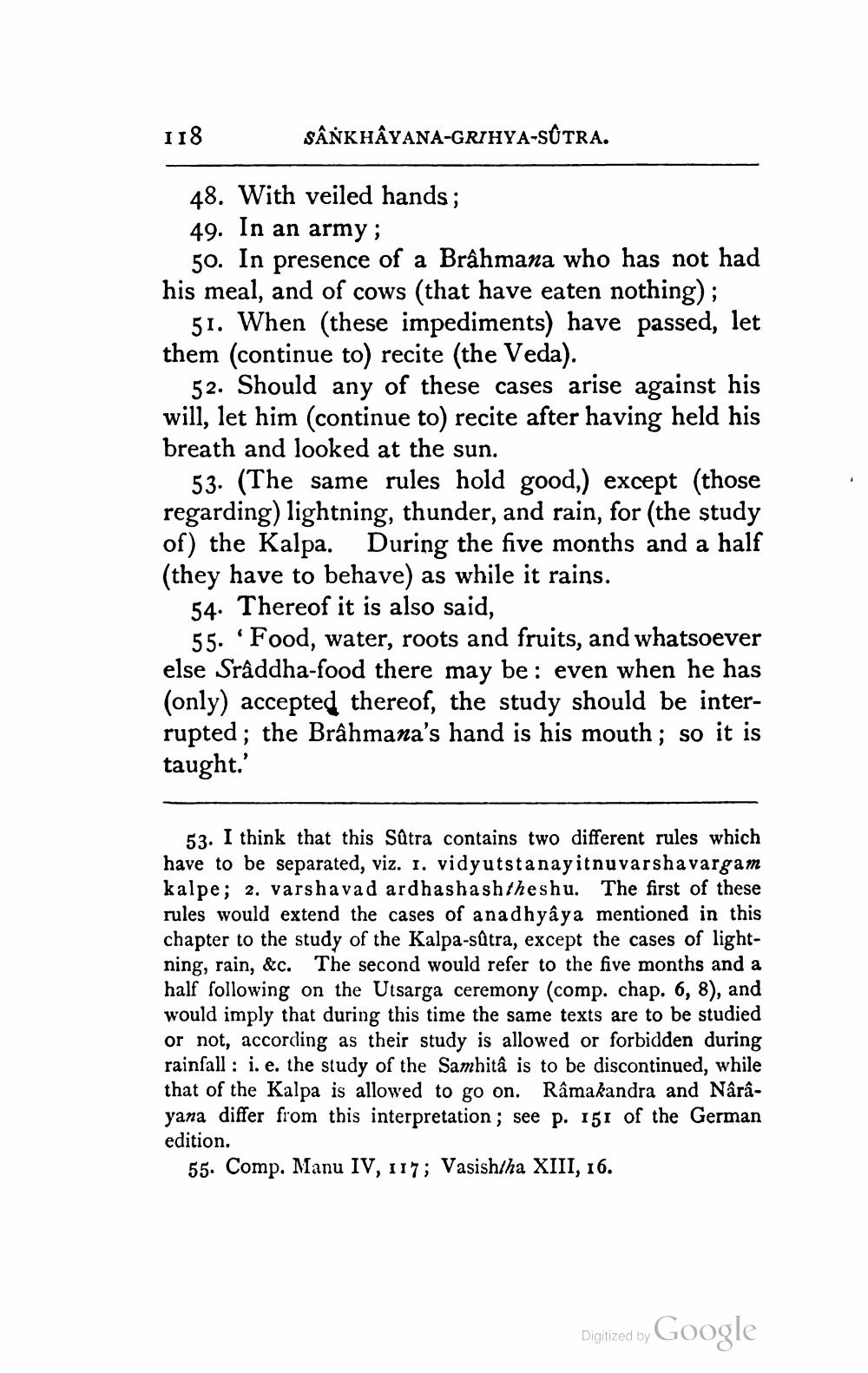________________
118
SANKHÂYANA-GRIHYA-SUTRA.
48. With veiled hands;
49. In an army;
50. In presence of a Brahmana who has not had his meal, and of cows (that have eaten nothing);
51. When (these impediments) have passed, let them (continue to) recite (the Veda).
52. Should any of these cases arise against his will, let him (continue to) recite after having held his breath and looked at the sun.
53. (The same rules hold good,) except (those regarding) lightning, thunder, and rain, for (the study of) the Kalpa. During the five months and a half (they have to behave) as while it rains.
54. Thereof it is also said,
55. 'Food, water, roots and fruits, and whatsoever else Srâddha-food there may be even when he has (only) accepted thereof, the study should be interrupted; the Brâhmana's hand is his mouth; so it is taught.'
53. I think that this Sûtra contains two different rules which have to be separated, viz. 1. vidyutstanayitnuvarshavargam kalpe; 2. varshavad ardhashash the shu. The first of these rules would extend the cases of anadhyâya mentioned in this chapter to the study of the Kalpa-sûtra, except the cases of lightning, rain, &c. The second would refer to the five months and a half following on the Utsarga ceremony (comp. chap. 6, 8), and would imply that during this time the same texts are to be studied or not, according as their study is allowed or forbidden during rainfall: i. e. the study of the Samhitâ is to be discontinued, while that of the Kalpa is allowed to go on. Râmakandra and Nârâyana differ from this interpretation; see p. 151 of the German edition.
55. Comp. Manu IV, 117; Vasish/ha XIII, 16.
Digitized by Google




